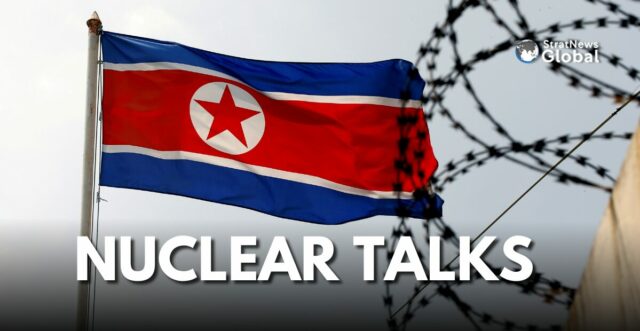North Korea has indicated a readiness to resume nuclear negotiations with the United States should Donald Trump win the upcoming presidential election. This information comes from Ri Il Gyu, a high-ranking North Korean diplomat who recently defected to South Korea.
Diplomatic Priorities and Strategies
Ri, who defected from Cuba, revealed in his first international media interview that North Korea has prioritised its foreign policy focus on Russia, the US, and Japan. He stated that North Korea is eager to engage in nuclear talks with the US under Trump, aiming to lift sanctions on its weapons programs, remove its designation as a state sponsor of terrorism, and secure economic aid.
Shift in North Korea’s Stance
This potential shift marks a departure from North Korea’s recent hardline stance, which included dismissing dialogue with the US and warning of armed confrontation. Ri attributed past diplomatic failures to Kim Jong Un’s reliance on inexperienced military commanders. He suggested that the foreign ministry would take a more significant role in future negotiations, making it challenging for Trump to impose one-sided terms.
Strengthening Ties with Russia and Japan
North Korea’s closer ties with Russia have yielded benefits in missile technology and economic support. Ri noted that Russia’s involvement in illicit transactions has lessened North Korea’s dependence on US sanctions relief, increasing its bargaining power. Meanwhile, Japanese Prime Minister Fumio Kishida’s interest in meeting Kim Jong Un could lead to a summit focused on economic assistance in exchange for concessions on the issue of Japanese nationals abducted by North Korea in the 1970s and 80s.
Personal Motivation and Defection
Ri, who had long harboured dreams of living in South Korea, was driven to defect after experiencing bullying and medical neglect. The hardships brought by the COVID-19 lockdown and financial troubles, which led to the closure of several North Korean diplomatic missions, further fuelled his decision. Ri highlighted the impact of South Korea’s diplomatic relations with Cuba, a move he had tried to prevent, as a symbol of changing international dynamics.
With Inputs from Reuters
Research Associate at StratNewsGlobal, A keen observer of #China and Foreign Affairs. Writer, Weibo Trends, Analyst.
Twitter: @resham_sng





